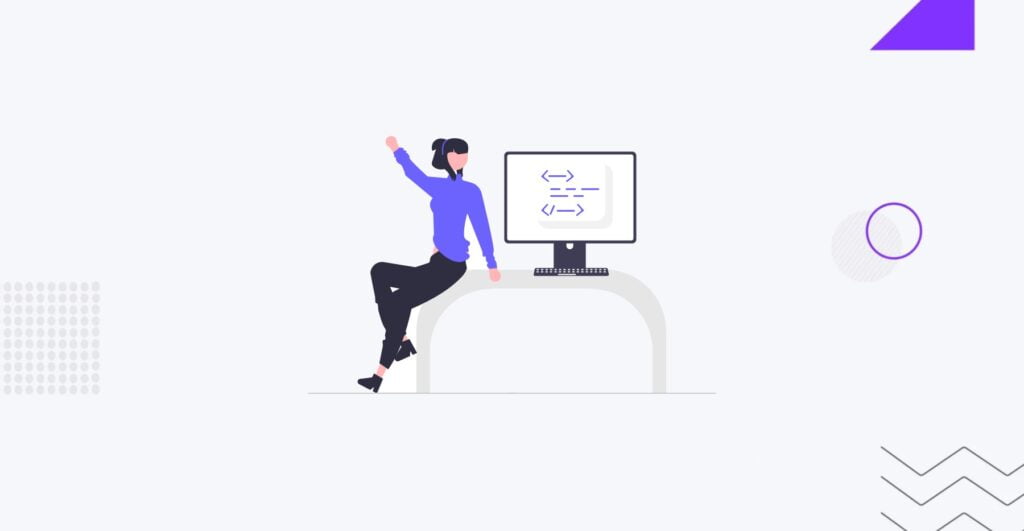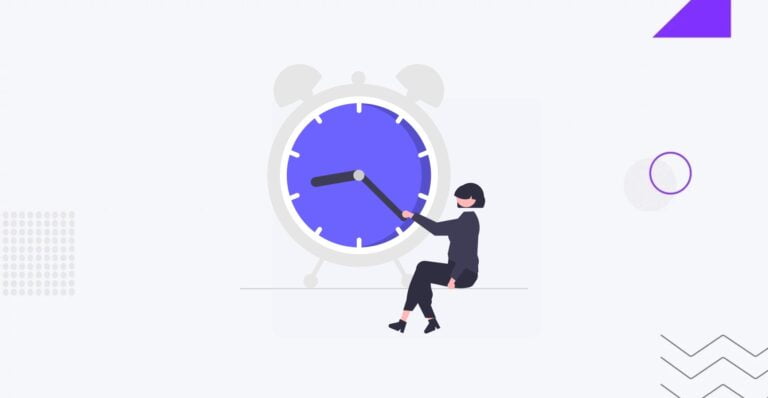Reasons to Upgrade PHP and Embrace PHP 8 New Features
Table of Contents
Table of Contents

PHP, the backbone of web development, offers efficiency and flexibility. It powers 75% of server-side websites, including WordPress, Drupal, and Joomla. Now, PHPPHPHypertext Preprocessor is a programming language primarily used for web development.
More About PHP 8 brings exciting features for enhanced web development. Discover reasons to upgrade PHP, especially for WordPressWordPressOpen-source content management system (CMS) that allows users to create and manage websites and blogs.
More About WordPress users, with the compatibility checker ensuring a seamless transition to PHP 8.
PHP 8 New Features
One such advancement is the release of PHP 8, which has brought significant improvements and exciting PHP 8 new features. For WordPress website owners, upgrading to PHP 8 ensures compatibility and unlocks a world of possibilities for enhancing performancePerformanceRefers to how fast a website or web application loads and responds to user interactions.
More About Performance and security. In this blog post, we will explore why WordPress websites should upgrade to PHP 8, highlighting its key features and providing insights on how to check WordPress PHP 8 compatibility.
Enhanced Performance and Speed
PHP 8 introduces a significant performance boost over its predecessors, making it an ideal choice for WordPress websites. With its Just-in-Time (JIT) compiler, PHP 8 optimizes code execution and improves overall speed. Your website will load faster, resulting in a better user experience and increased search engine visibility. Upgrading to PHP 8 will give your WordPress site a competitive edge in today’s fast-paced digital landscape.
Improved Error Handling
One of the standout features of PHP 8 is its enhanced error-handling capabilities. It introduces the Nullsafe Operator, which simplifies the process of checking for null values, reducing the likelihood of runtime errors. By leveraging this feature, you can ensure a more robust and stable WordPress website, minimizing the risk of unexpected crashes or downtime.
Union Types and Named Arguments
PHP 8 brings the long-awaited Union Types and Named Arguments features to the table. Union Types allow you to specify multiple data types for a variable, providing more flexibility and improving code readability. Named Arguments, conversely, enhance code clarity by allowing developers to pass arguments by name instead of relying solely on their position. These features make code maintenance and debugging easier, enabling WordPress developers to write cleaner and more efficient code.
Stronger Type System
PHP 8 introduces a more stringent type system, enabling better code quality and reducing the likelihood of runtime errors. Adding the Mixed and Never types allows developers to handle variables with mixed data types and explicitly express a function that never returns a value. By leveraging the stronger type system, WordPress developers can ensure better code predictability and maintainability.
Compatibility Checker for WordPress PHP 8
Before upgrading your WordPress website to PHP 8, it is essential to check its compatibility. Luckily, various tools are available, such as the WordPress PHP 8 compatibility checker pluginPluginA piece of software that can be easily installed and activated on a CMS platform to enhance its capabilities.
More About Plugin. This plugin analyzes your existing codebase and identifies potential issues that might arise after the upgrade. By running these compatibility checks, you can address any conflicts or incompatibilities in advance, ensuring a smooth transition to PHP 8.
Vital Considerations Before You Upgrade PHP

Before upgrading, please ensure your website’s codebase and all plugins, themes, and librariesLibrariesCollections of pre-written code and functionalities that developers can leverage to streamline their development process.
More About Libraries are compatible with PHP 8. Tools like the PHP Compatibility Checker or running PHPUnit tests can help identify any potential issues.
Check if your hostingHostingThe process of storing and serving website files on a remote server, making them accessible to visitors around the world.
More About Hosting provider supports PHP 8. Contact your hosting support to inquire about PHP 8 availability and recommended steps for upgrading.
Consider reaching out to experts like WebDevStudios for guidance on best practices, potential challenges, and assistance with the upgrade process. They offer a monthly retainer for ongoing web development and support.
Reasons to Upgrade PHP
PHP 8, released in November 2020, brought numerous enhancements and new features that enhance the efficiency of your web applications. Let’s explore some of the key benefits.
Performance Boost
PHP 8 stands out for its significant performance improvements. Thanks to the new Just-In-Time (JIT) compiler, your PHP applications can run much faster. This translates to quicker loading times for your WordPress website, providing a smoother and more engaging user experience.
Typed Properties and Arguments
PHP 8 introduces the ability to specify types for class properties and function arguments. This increased type safety helps prevent bugs and errors in your codebase, resulting in more reliable and stable WordPress plugins and themes.
Union Types
With PHP 8, you can use union types to indicate that a parameter or return value can be of multiple types. This flexibility simplifies your code and improves its readability, making it easier to understand and maintain.
Attributes
Attributes allow adding metadata to your code, enabling cleaner and more organized documentationDocumentationThe process of creating, organizing, and maintaining written materials that provide information about a web project.
More About Documentation and information. This is particularly useful when developing or using WordPress plugins, as it simplifies understanding their functionalities.
Speed
PHP 8 is faster and more efficient than its predecessors, resulting in quicker website loading times. This improvement enhances user experience and keeps visitors engaged. Faster load times can significantly reduce bounce rates and improve overall user satisfaction.
Security
Security is a top priority for website owners. PHP 8 has enhanced security features and fixes vulnerabilities found in older PHP versions. By upgrading, you’ll adopt the latest security measures, ensuring your website and user data are protected against potential threats.
SEOSEOSearch Engine Optimization involves optimizing various website elements to make it more attractive to search engines like Google, Bing, and Yahoo.
More About SEO Impact
Website speed plays a crucial role in SEO. Search engines like Google take into account page load times when ranking websites. Upgrading to PHP 8’s improved speed can positively impact your site’s SEO, potentially increasing its visibility and ranking in search results.
If Something Goes Wrong
When upgrading, you may come across some common issues. Here are some tips to help troubleshoot:
- White Screen or Errors. If you see a white screen or error message, enable PHP error reporting and review the error logsLogsRecorded events and actions that occur within a website or application.
More About Logs to find the root cause. - Deprecated Functions. PHP 8 introduces many deprecated functions and changes. Ensure you update your codebase to use the new recommended functions and syntax.
- Incompatible Plugins/Themes. Some plugins and themes may not be compatible with PHP 8. If you encounter problems after the upgrade, try disabling plugins or themes one by one to identify the cause.
- Memory Limit Exhaustion. PHP 8 may require more memory than previous versions. Adjust the memory_limit in your PHP configuration if you encounter memory exhaustion errors.
- Namespaces and Classes. PHP 8 may enforce stricter rules for namespaces and classes. Ensure that your code follows the proper naming conventions for namespaces and classes.
- Compatibility Mode. PHP 8 introduces stricter type-checking. You may need to update your code to meet the stricter type requirements.
- Opcode Caches. If you use opcode caches like OPCache, remember to clear the cache after the PHP upgrade to prevent any conflicts.
Rely on Expert Web Development Help
IT Monks is here to assist you if you need help updating to PHP 8 or are unsure how to start the upgrade process. As a trusted name in web development, we provide continuous support for creating custom projects and smoothly transitioning your existing ones. Our team of experts can help you navigate the upgrade, address any compatibility issues, and ensure that your website retains its performance and security.
FAQ
- Can WordPress use PHP 8?
Yes, WordPress can use PHP 8. It is recommended to use PHP 8.2 with WordPress 6.0 or 6.1 for compatibility and better performance. If you are using an older WordPress version, you can test your site with WordPress 6.0 in a staging environment. If you don’t experience any issues, then upgrade your live WordPress site to enjoy using PHP 8.2 on WordPress.
- Is WordPress compatible with PHP 8?
Yes, WordPress is compatible with PHP 8. If you want to benefit from the latest features, better error handling, improved RFCs, and optimizations, you should upgrade your PHP version to PHP 8.
- Should I upgrade to PHP 8?
Yes, upgrading your PHP version to PHP 8 is recommended if you want to benefit from the latest features, better error handling, improved RFCs, and optimizations.
- What version of PHP should I use for WordPress?
We recommend using PHP 8.2 with WordPress if you use at least WordPress 6.0. The oldest PHP version that we recommend using with WordPress is PHP 8.0.




